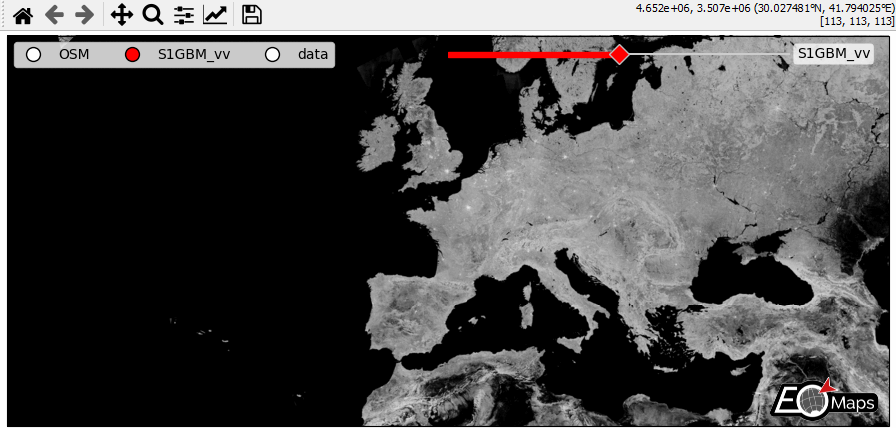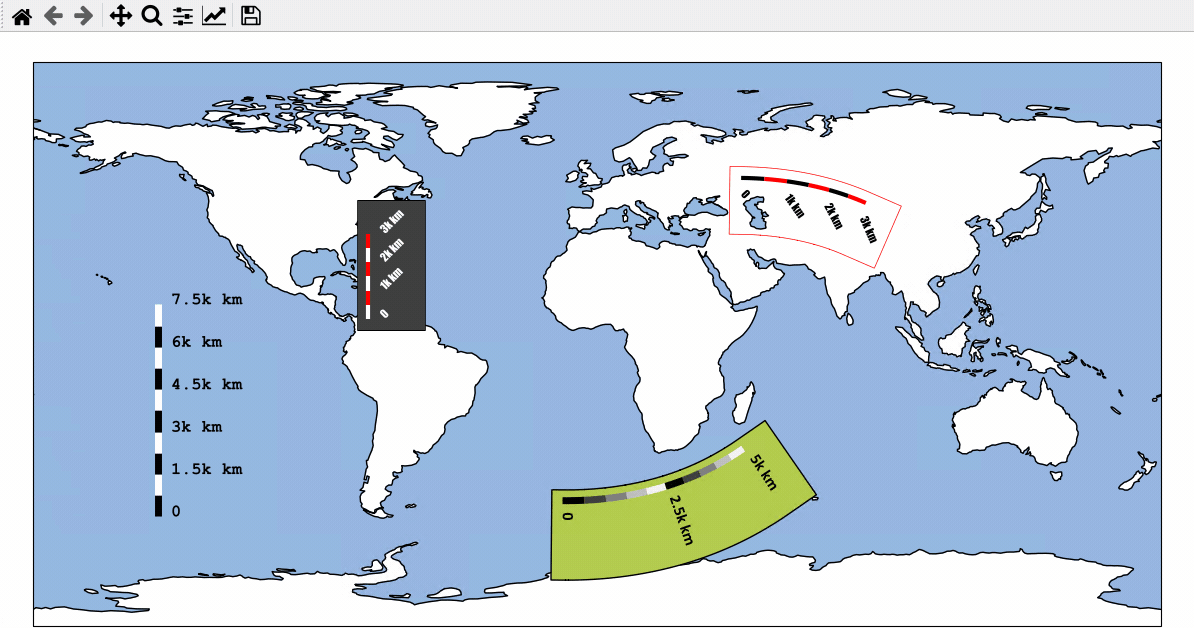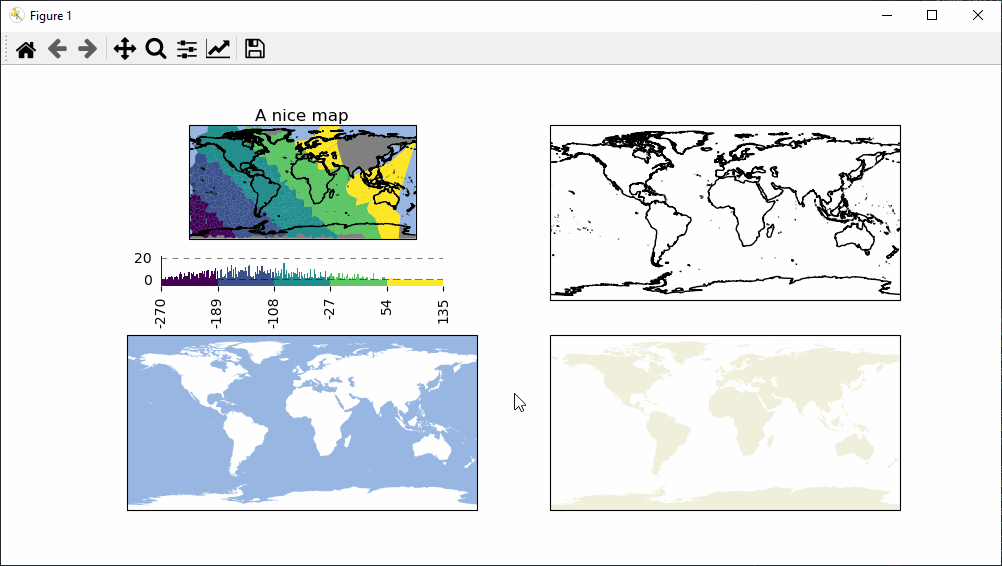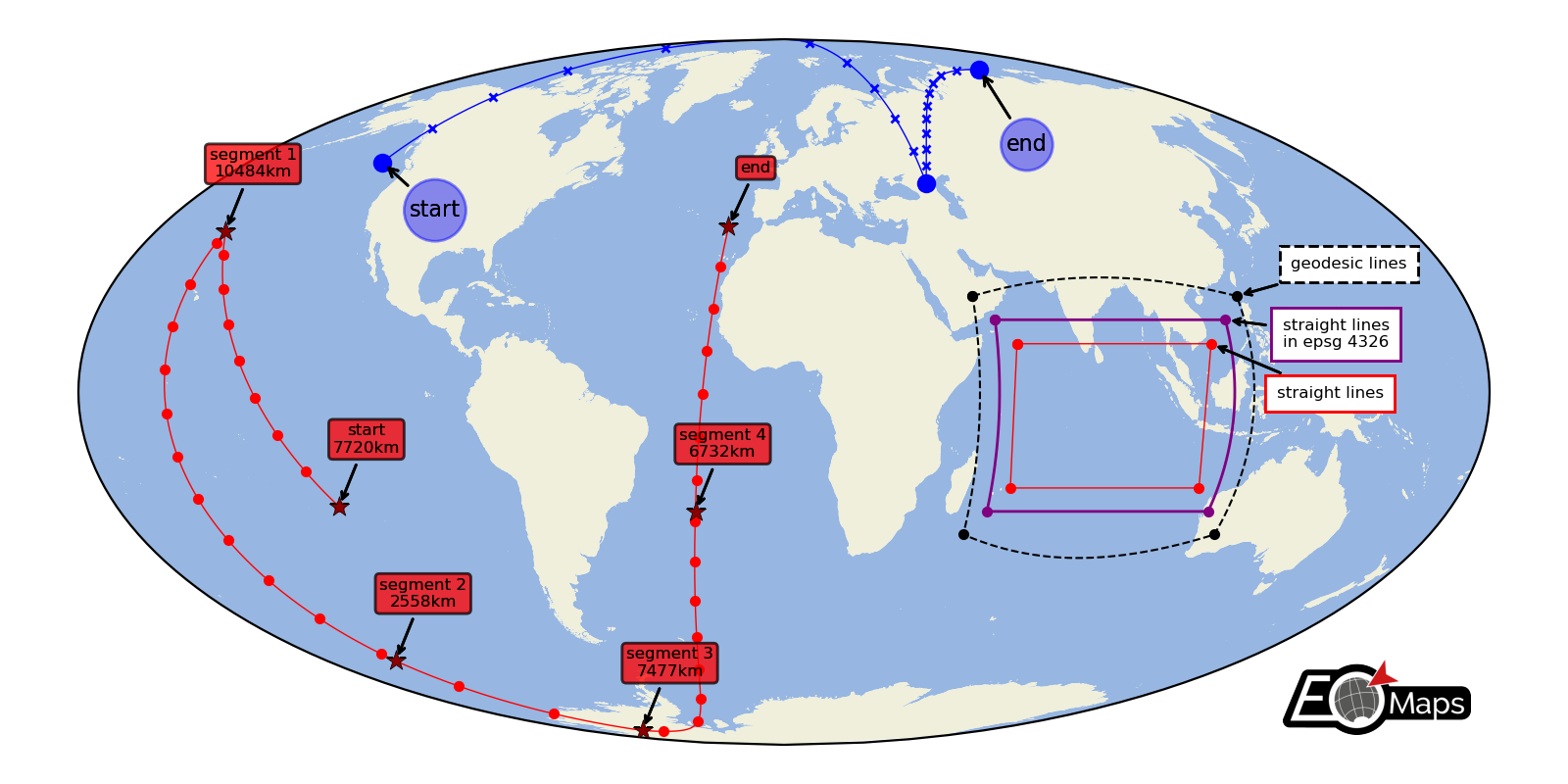
Research
/Security News
Toptal’s GitHub Organization Hijacked: 10 Malicious Packages Published
Threat actors hijacked Toptal’s GitHub org, publishing npm packages with malicious payloads that steal tokens and attempt to wipe victim systems.
| EOmaps aims to provide a comprehensive, flexible, well-documented and easy-to-use API to create publication-ready maps that can directly be used for interactive data analysis. |
EOmaps is built on top of matplotlib and cartopy and integrates well with the scientific python infrastructure (e.g., numpy, pandas, geopandas, xarray etc.), allowing you to visualize point-, raster- or vector-datasets provided in almost any format you can imagine, no matter if you're dealing with just a few unsorted datapoints or multi-dimensional stacks of global high-resolution datasets.
Figures created with EOmaps are multi-layered, so you can (transparently) overlay and interactively compare your datasets with ease. With the accompanying GUI widget, you can quickly switch layers, change the layout, examine the large collection of features and web-map services, and explore the capabilities of EOmaps. Once you're map is ready, you can export it as high-resolution image or vector-graphic for further editing. Leveraging the powers of matplotlib, you can also embed interactive maps in Jupyter Notebooks, on a webpage or in GUI frameworks like Qt, tkinter etc..
[!IMPORTANT]
EOmaps is 100% free and open-source.
As such, acknowledgement is extremely important to allow continued support and development of the package.Did EOmaps help in your research? $\Rightarrow$ Add a ✔️ Citation to your publication!
BibTeX
The following BibTeX entry uses a DOI that always points to the latest release of EOmaps!
(You can get the DOI for a specific version form the zenodo-page)@software{eomaps, author = {Raphael Quast}, title = {EOmaps: A python package to visualize and analyze geographical datasets.}, doi = {10.5281/zenodo.6459598}, url = {https://doi.org/10.5281/zenodo.6459598} }
Head over to the start-page of the <a href=https://eomaps.readthedocs.io/>📖 Documentation to get an overview of all available features and functionalities!
[!TIP] For a quick hands-on introduction, checkout this article on dev.to:
Geographic data visualization and analysis with EOmaps: Interactive maps in python!
To install EOmaps (and all its dependencies) with the conda package-manager, simply use:
conda install -c conda-forge eomaps
[!TIP] To get a huge speedup, use mamba to solve the dependencies!
mamba install -c conda-forge eomaps
Advanced users can also use
pipto install EOmaps (and selectively install optional dependency groups)pip install eomaps # install only minimal required dependencies pip install eomaps[all] # install all optional dependencies ...
For more detailes, have a look at the Installation Instructions or the quickstart guide "From 0 to EOmaps"!
Interested in contributing to EOmaps? Awesome!
You can find detailed instructions on how to setup EOmaps for development in the Contribution Guide!
Found a bug or got an idea for an interesting feature?
Open an issue or start a discussion, and I'll see what I can do!
|
|

|

| |

|

|

|

|

|

|

|

|
The development of EOmaps has been supported by:
TU Wien Department of Geodesy and Geoinformation - Research Area Remote Sensing
FAQs
A library to create interactive maps of geographical datasets.
We found that eomaps demonstrated a healthy version release cadence and project activity because the last version was released less than a year ago. It has 1 open source maintainer collaborating on the project.
Did you know?

Socket for GitHub automatically highlights issues in each pull request and monitors the health of all your open source dependencies. Discover the contents of your packages and block harmful activity before you install or update your dependencies.

Research
/Security News
Threat actors hijacked Toptal’s GitHub org, publishing npm packages with malicious payloads that steal tokens and attempt to wipe victim systems.

Research
/Security News
Socket researchers investigate 4 malicious npm and PyPI packages with 56,000+ downloads that install surveillance malware.

Security News
The ongoing npm phishing campaign escalates as attackers hijack the popular 'is' package, embedding malware in multiple versions.